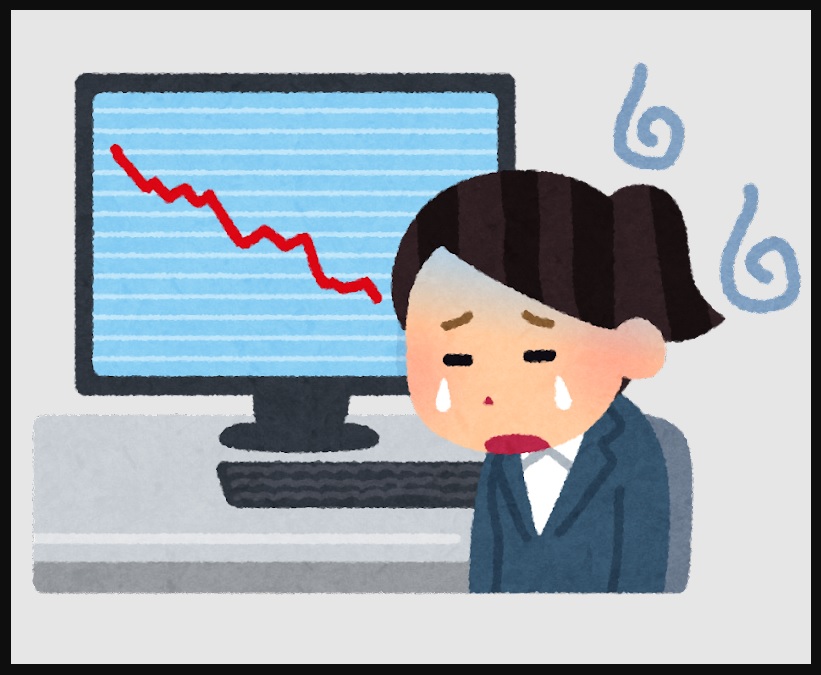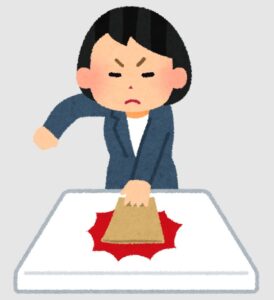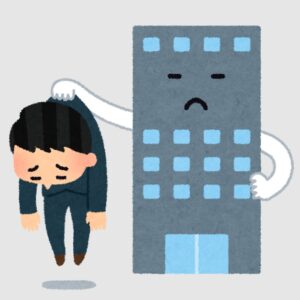管理人オススメコンテンツはこちら
「どこまで下がるんだ!!|最後の退職金難民―守られない老後の幕開け」
〜前回のつづき〜
●退職金制度の3つのトレンド(つづき)
(2)年金形式で退職金を支払う企業は減ってきている
退職金の支払い方は
大きく2パターン有るんですね。
2-a)一時金で支払う
2-b)年金として支払う
例えば
退職金の総額が2千万円の場合
1千万円を退職時に一括で支払って
残りの1千万円を
年利○%で運用しながら
20年にわたって支払うとか
そういうイメージです。
2-b)の
年金として支払うパターンの方が
企業として負担が重いんですね。
60歳定年として
退職金を一時金で支払うのであれば
そこでもう従業員とは
手が切れるんですけど
20年かけて
年金形式で支払う場合だったら
従業員が
60歳で退職してから
80歳になるまで
それなりの利回りで
運用し続けながら
毎年一定額の年金を
支払い続けないといけないという事で
結構大変なんですよ。
こういう制度を
『確定給付年金』と言うんですね。
企業から従業員への年金支払い額
つまり
給付額が確定している年金の事
だから
確定給付年金と言うんですけど
この制度は企業にとっては
かなり負担が重たいんですね。
だけど
従業員にとっては人生設計がしやすくて
非常に嬉しい制度なんです。
でも企業としては
負担が重たい。
退職金を
年金形式で支払う企業の割合は
1993年→48.8%
2018年→22.6%
この25年で激減してるんですね。
企業からしてみると
「君の人生全部なんて面倒見切れません!」
という事です。
(3)退職金の支給額は減ってきている
冒頭でお話ししたように
退職金の支給額は減る一方なんですよ。
1997年→2,871万円
2003年→2,499万円
2008年→2,280万円
2013年→1,941万円
2018年→1,788万円
と
「どこまで下がるんだ!!」
といった感じですよね。
この調査は5年ごとにやってるので
次の統計調査は2023年なんですけど
一体どうなってる事やらという事ですね。
ちなみにこの1,788万円というのは
大卒で勤続20年以上の
45歳以上の退職者の数字なので
高卒の事務職の場合であれば
1,396万円になるんですね。
更にガクッと下がる。
・大企業か
・中小企業か
また
・大卒か
・高卒か
によって
数字は大きく変わるんですけど
ただ全体のトレンドとして
大きく減ってきているという
この現状を
まず認識しておいた方が
よろしいかと思います。
退職金はトレンドとして
減ってきているんです。
〜〜〜つづく〜〜〜
Special Thanks college president Ryo.
●おまけ
≪≪perplexityちゃんによる文章まとめ≫≫
退職金制度には一時金と年金形式の2つがありますが、近年は年金形式を採用する企業が急減しています。
従業員にとっては「確定給付年金」と呼ばれるこの仕組みは老後設計がしやすく安心ですが、企業側にとっては退職後20年近くにわたり運用と支払いを続ける必要があり、大きな負担です。
その結果、1993年に48.8%あった導入割合は2018年には22.6%へと大きく低下しました。
加えて退職金の金額そのものも減少傾向にあり、平均は1997年の2,871万円から2018年には1,788万円へと下落。
大卒か高卒か、大企業か中小企業かによって差は大きいものの、全体の方向性としては確実に減少が進んでいます。
老後資金を企業に頼り切れない時代に入ったといえるでしょう。
- https://kumitateru.jp/media/plan/R231227001
- https://kumitateru.jp/learn/severance-pay/survey.html
- https://www.e-stat.go.jp/stat-search/files?page=1&layout=datalist&lid=000001434145
- https://www.mhlw.go.jp/toukei/itiran/roudou/jikan/syurou/08/3d.html
- https://www.mhlw.go.jp/toukei/itiran/roudou/jikan/syurou/23/
- https://www.transtructure.com/hr-data-analysys/personnel_costs/p11587/
≪≪Chat-GPTくんによる英訳≫≫
~Continuation from the previous section~
【Three Trends in Retirement Allowance Systems (continued)】
(2) Fewer companies are paying retirement benefits in the form of pensions
There are basically two main ways companies pay out retirement allowances:
2-a) Lump-sum payment
2-b) Pension-style payment
For example, if the total retirement benefit is 20 million yen,
a company might pay 10 million yen as a lump sum at retirement,
and then invest the remaining 10 million yen at an annual rate of ○%
while paying it out over 20 years.
That’s the idea.
Now, option 2-b — paying it as a pension —
is a much heavier burden for companies.
If a company pays the entire retirement allowance
as a lump sum at age 60, when the employee retires,
their relationship essentially ends there.
But if they pay it out over 20 years in a pension-style format,
the company must continue investing at a reasonable return
and keep paying a fixed annual amount,
from when the employee retires at 60 until age 80.
That’s a serious burden.
This type of system is called a Defined Benefit Pension (DB pension).
The reason is simple:
the pension amount to be paid to the employee is predetermined —
in other words, the benefit is defined.
That’s why it’s called a “defined benefit” pension.
For companies, this system is a heavy load.
But for employees, it makes life planning much easier,
so it’s a very welcome system.
Still, from the company’s perspective, it’s just too burdensome.
The percentage of companies that pay retirement allowances
in a pension-style format has plummeted:
1993 → 48.8%
2018 → 22.6%
In just 25 years, it has dropped sharply.
From the company’s point of view:
> “We can’t take care of your entire life!”
That’s essentially what it means.
—
(3) Retirement benefit amounts are decreasing
As mentioned earlier,
the amount of retirement allowances has been steadily declining.
1997 → 28.71 million yen
2003 → 24.99 million yen
2008 → 22.80 million yen
2013 → 19.41 million yen
2018 → 17.88 million yen
It really makes you want to say:
> “How low can it go!?”
This survey is conducted every five years,
so the next set of data is from 2023.
Who knows what the numbers will show?
By the way, this figure of 17.88 million yen
is for university graduates with 20+ years of service,
aged 45 and above at retirement.
For high school graduates in clerical positions,
the amount drops to 13.96 million yen.
That’s a sharp decrease.
Whether the company is:
a large enterprise, or
a small/medium enterprise,
and whether the retiree is:
a university graduate, or
a high school graduate,
the numbers differ significantly.
But the overall trend is clear:
retirement benefits are shrinking.
It’s important to recognize this reality first.
Retirement allowances, as a trend,
are undeniably decreasing.
Special Thanks OpenAI and Perplexity AI, Inc








